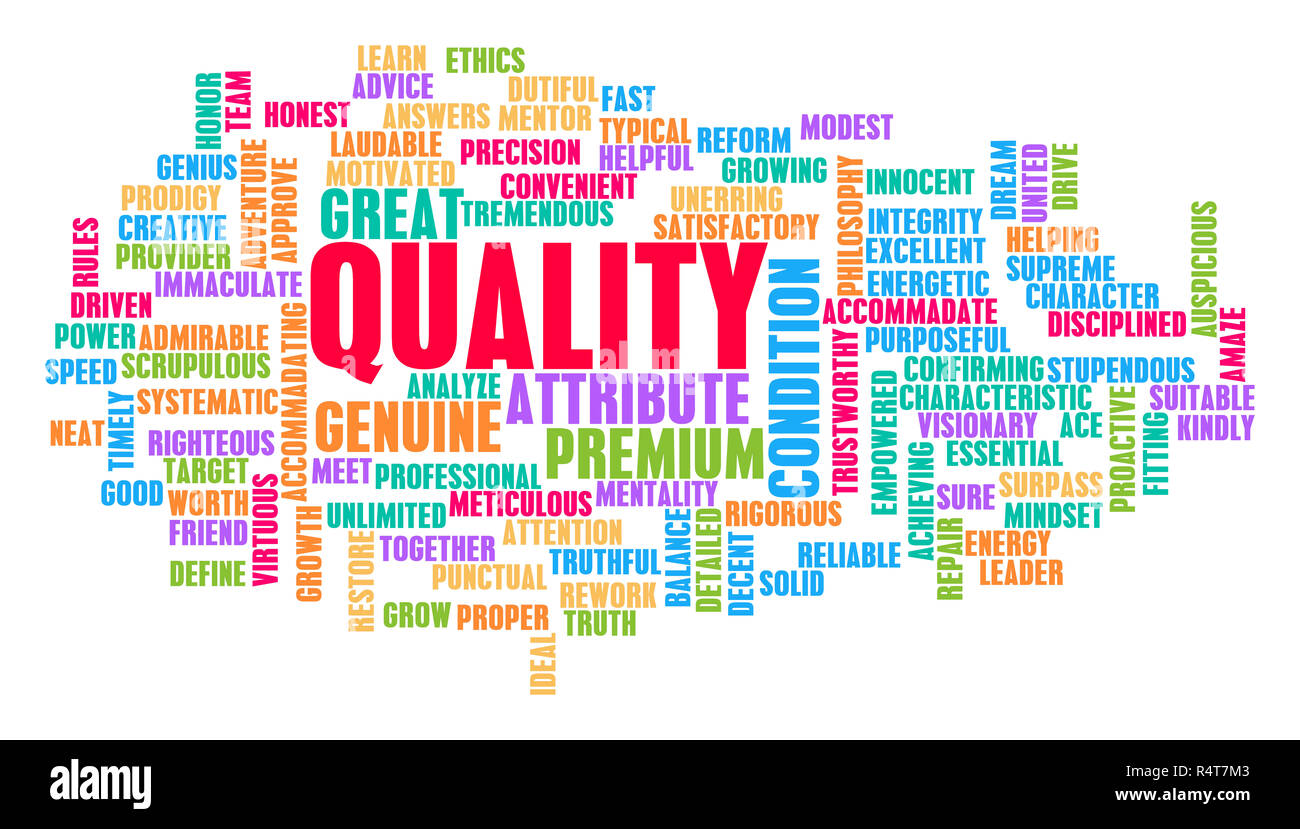In today's fast-paced digital world, the significance of "words of quality" cannot be overstated. Quality words are not merely a selection of vocabulary; they embody the essence of effective communication. When we talk about quality in words, it encompasses clarity, precision, and impact, which are critical in various aspects of life, including professional settings, personal relationships, and content creation. This article will delve into the importance of using quality words, explore the elements that contribute to effective communication, and provide actionable tips for improving your vocabulary and expression.
As we navigate through the complexities of communication, understanding the power behind our words can elevate our interactions and influence. Whether you are writing an article, giving a presentation, or engaging in casual conversation, the choice of words plays a crucial role in delivering your message effectively. This article aims to equip you with the knowledge and tools needed to enhance your communication skills and ensure that your words resonate with your audience.
In the following sections, we will break down the concept of quality words, explore their impact on communication, and provide strategies to cultivate a richer vocabulary. By the end of this article, you will be empowered to express yourself with confidence and clarity, making your words truly matter.
Table of Contents
- Definition of Quality Words
- Importance of Quality Words in Communication
- Elements of Quality Communication
- Strategies for Improving Vocabulary
- Examples of Quality Words in Action
- Common Mistakes to Avoid
- The Impact of Quality Words
- Conclusion
Definition of Quality Words
Quality words are defined as those that effectively convey a message and elicit a response from the audience. They are characterized by:
- Clarity: Quality words are clear and unambiguous, allowing the audience to grasp the message without confusion.
- Conciseness: They express thoughts succinctly, eliminating unnecessary jargon or filler words.
- Impact: Quality words evoke emotions and drive action, making the message memorable.
Importance of Quality Words in Communication
Using quality words is crucial for several reasons:
- Enhances Understanding: Clear and precise language helps the audience comprehend the message more effectively.
- Builds Credibility: Well-chosen words reflect professionalism and authority, establishing trust with the audience.
- Facilitates Engagement: Impactful language captures attention and encourages interaction.
Elements of Quality Communication
Effective communication hinges on several key elements:
1. Audience Awareness
Understanding your audience is essential. Tailoring your language to their needs and preferences ensures that your message resonates.
2. Contextual Relevance
The context in which you communicate plays a significant role. Quality words should align with the situation, whether formal or informal.
3. Emotional Intelligence
Incorporating empathy and understanding into your communication fosters a deeper connection with your audience.
Strategies for Improving Vocabulary
Improving your vocabulary and the quality of your words can be achieved through various strategies:
- Read Widely: Exposure to different writing styles enhances your vocabulary and comprehension.
- Practice Writing: Regular writing exercises help refine your expression and clarity.
- Use a Thesaurus: When looking for synonyms, a thesaurus can help you discover richer word choices.
Examples of Quality Words in Action
Here are a few examples of how quality words can transform communication:
- Instead of saying "good," use "exceptional" or "outstanding."
- Replace "very big" with "enormous" or "vast."
- Change "help" to "assist" or "facilitate" for a more formal tone.
Common Mistakes to Avoid
While striving for quality in communication, be mindful of common pitfalls:
- Overcomplicating Language: Using overly complex words can confuse rather than clarify.
- Neglecting Audience: Failing to consider the audience's background may lead to misinterpretation.
- Inconsistency: Mixing formal and informal language can undermine your credibility.
The Impact of Quality Words
The impact of using quality words extends beyond effective communication:
- Personal Growth: Improved communication skills can enhance relationships and open opportunities.
- Professional Advancement: Strong verbal and written skills are often linked to career success.
- Community Influence: Quality communication fosters a more informed and engaged community.
Conclusion
In summary, the power of "words of quality" lies in their ability to enhance communication, foster understanding, and build credibility. By focusing on clarity, conciseness, and impact, you can elevate your interactions and make a lasting impression. We encourage you to take action by implementing the strategies discussed in this article, improving your vocabulary, and practicing effective communication. Share your thoughts in the comments below, and feel free to explore more articles on our site for further insights!
Thank you for reading! We hope you found this article valuable and look forward to welcoming you back for more enlightening content.
Article Recommendations
- Impact Of Mitch Mcconnells Scotus Vote On American Politics
- Jay Lenos Recovery Journey An Indepth Look At His Life And Health Postaccident
- Fantasia Barrinos Wealth An Indepth Look At Her Net Worth


